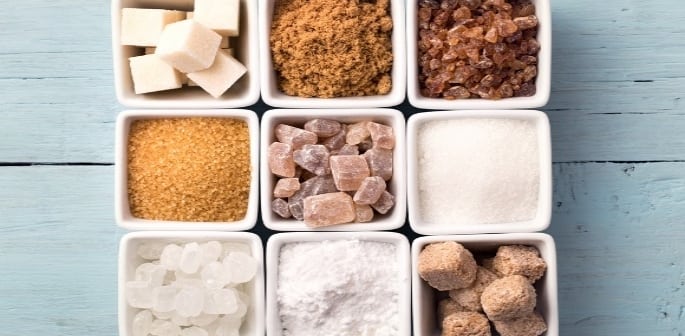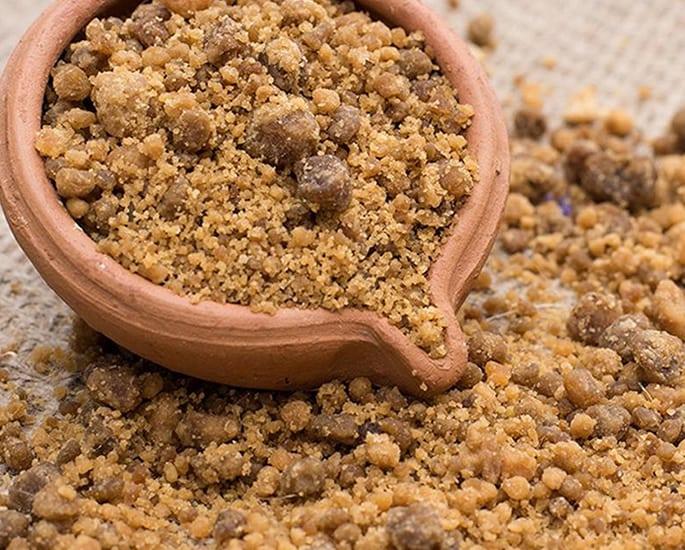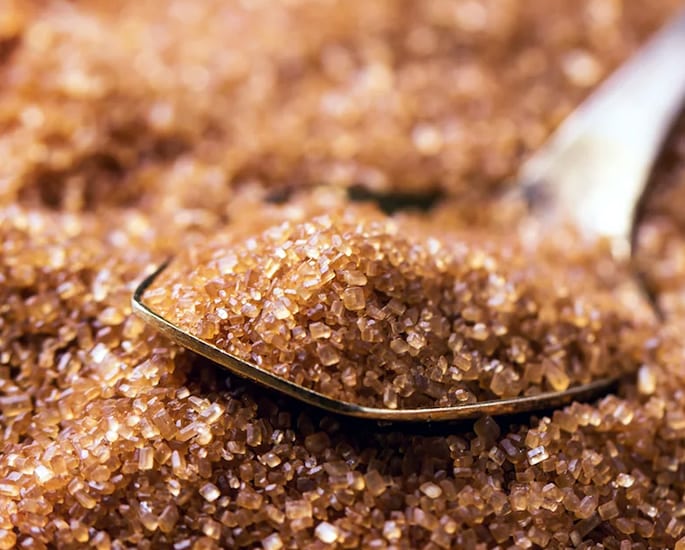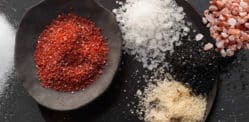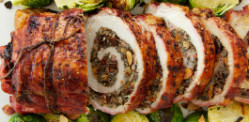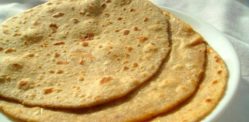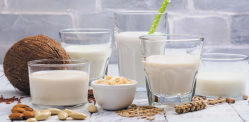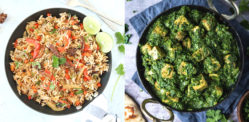Polyphenols with high antioxidant effects in molasses decrease absorption of calories in the body and therefore reduce obesity.
Many Desi recipes can work just as well or even better with healthier alternatives to white table sugar.
DESIblitz discovers five affordable alternatives to substitute sugar in your everyday eating habits.
Breaking the habit of adding white sugar to your food and replacing it with sugar alternatives could help your overall health.
By sweetening your daily coffee, tea or meals that you prepare yourself with sugar replacements, your intake can be drastically decreased.
White sugar is damaging to your health in many ways. It is the biggest food being targeted to be swapped out in diets.
Why is Sugar Bad for You
Sodas, juices and sweet teas all contain added sugars that are very damaging for your health and teeth.
Consuming more sugar than the suggested daily intake causes high blood pressure, inflammation and can even cause the emergence of acne.
The Heart Association suggests that women should get maximally 6 teaspoons of added sugar daily, while men shouldn’t consume more than 9 teaspoons of added sugar per day.
Adults in America consume 22 tbsp of sugar daily, and teens consume even more. In the UK, adults consume 22 teaspoons of sugar or 90 g of sugar per day.
Excessive sugar intake also leads to visceral fat, which is very dangerous because it is a precursor to diabetes and heart disease.
Eating too many refined carbs from sweet food and drinks increases blood sugar, triggers upsurges in insulin levels.
It also prompts androgenic hormones and oil secretion, all of which are responsible for acne breakouts.
Gaining weight and getting cavities are other physically bad consequences of taking too much sugar.
White sugar contains 50 % glucose and 50% fructose.
Fructose and glucose are types of sugar with the same amount of calories. They are found in whole foods such as fruits, vegetables and dairy products and they are not unhealthy in that form.
However, when they are found in processed foods they are damaging to your health.
Liver transforms fructose into glucose that body uses for energy. However, the excess of fructose is turned into fat.
Fructose doesn’t raise blood sugar but causes high cholesterol, obesity and fatty liver disease.
Too much fructose causes increased hunger and sugar cravings. It can cause even more dangerous consequences such as insulin resistance and type 2 diabetes.
The excess of glucose is turned into a form of glucose, glycogen, and stored in muscles and liver for the future use.
High glucose in the blood is dangerous for diabetics because it encourages insulin production as it raises blood sugar quickly.
Glycemic Index is a number showing the level of glucose in your blood after you eat.
White sugar has a Glycemic Index(GI) of 60. In order to control your blood sugar levels, you should consume sweeteners with a GI of less than 60.
There are many desi sugar alternatives that you could consider including in your diet.
Jaggery
Jaggery or Gur in Hindi is cane sugar mostly consumed in South Asia. This is the cheapest natural sweetener and it is produced in India and Africa.
The sugarcanes are directly pressed into machines that extract the sweet juice out of the canes. Concentrated sugar cane has to be boiled until it hardens. After that, it is chopped into blocks or rolled into patties.
Jaggery doesn’t lose its nutritional content because it is produced naturally out of unrefined sugar.
In contrast, white sugar is processed many times until it reaches the texture of tiny crystals. During that process, white sugar loses its natural nutrients and artificial chemicals are added to it.
Jaggery has many health benefits. It detoxifies the liver, prevents constipation and even cures a cough and cold.
Ancient Indians used it to warm up their body temperature and regain energy. They used it to make their immunity stronger and against cold and cough because of its high iron levels.
In the past, jaggery was also used for cleansing the lungs, throat and respiratory system.
Culturally, Jaggery is an important ingredient in harvest festivals in India. It is also traditionally consumed after childbirth, funerals, or to celebrate good news or successful business.
Jaggery is an Indian traditional sweetener and is used in chocolates, traditional Indian healthy tonics, syrups and even alcoholic drinks such as rum.
Jaggery should still be used in moderation because it is quite calorically dense.
- Holland & Barrett Meridian Natural Date Syrup 330 g ~ £2.49
- Morrisons Basra Date Syrup 450 g ~ £3.00
- Sainsbury’s Clarks Date Syrup 330 g ~ £2.50
Nolen or Patari Gur (Date Palm Jaggery)
Dates are one of the oldest cultivated traditional plants. They have been cultivated in the Arabian peninsula for 6000 thousand years, but also in India and Pakistan.
In South Asia, dates are mostly produced in West Bengal in India and in Bangladesh. They are mostly produced and consumed in winter because they are nutritious and warm the body.
Date sugar is made only from the fruit of dates because the preparation process includes only sun drying the fruit without additional processing. In the process of sun drying, dates retain their initial nutritional value.
Date palm syrup is made by boiling the sap of date palm. You will recognise it by the golden brown to dark brown in colour. It can be either solid, granular or a red liquid, and its aroma is close to dark chocolate.
There are numerous benefits of dates. Not only are they antioxidants with rich nutritional value, but they also have anti-cancerous and anti-diabetic value.
The phenolic compounds in dates give them their antioxidant and antibacterial values.
Dates contain minerals including potassium, fibre, iron, magnesium, selenium and zinc. These minerals are essential for overall health. Potassium, for example, is great for leg cramps and muscle spasms.
If possible, try to buy homemade date sugar, as some of the nutrients and vitamins such as B6 are destroyed during the processing of food that is on today’s market.
Therefore, read the packages well and research before buying date sugar.
In contrast to other sugars, date sugar has a low glycemic index of only 45-50, which makes it a bit safer for diabetics than white sugar.
Dates also reduce the absorption of sugar because of their high fibre content. This makes dates safe, healthy and beneficial for people with blood sugar issues.
Additionally, dates have enormous healing properties.
The combination of date sugar, syrup and honey is helpful during gut healing because dates don’t irritate gut microbiome as much as white sugar.
Furthermore, dates inhibit the growth of bacteria such as Escherichia Coli.
Are all of these benefits of dates motivating you to replace white granulated sugar with dates in your everyday lifestyle?
The only downside of date sugar is that it doesn’t dissolve easily, so it isn’t great for baking. Instead, use date syrup while baking.
Date palm jaggery can be used for rice cooking and in sweet dishes such as cakes, rice puddings, porridge, milk and coconut sweets.
Nutritionists recommend maximally 10 grams of date palm jaggery daily.
Nolen or Khajur Gur (Coconut Palm Sugar)
Nolen Gur goes through minimal processing in which no chemicals are used. That is why coconut palm sugar is considered to be a natural sugar.
Palm sugar is produced out of a nectar from the coconut tree’s flower buds. It is extracted by hand and therefore considered a golden luxury. It can be found in blocks, granules and liquid forms.
It has a caramel taste in its liquid form while in its granular form it tastes similar to white table sugar.
Coconut palm sugar is a common ingredient in traditional South Asian curries, sauces and desserts.
Even though coconut sugar contains 78% glucose and fructose, it still contains a lot of beneficial nutrients and antioxidants that white sugar lacks.
Coconut sugar contains important minerals such as magnesium, iron and zinc which provide many benefits to the human organism.
It also contains potassium and vitamin B, which strengthens your immune system, reduces tiredness and fatigue, and lowers the risk of stroke.
Coconut palm sugar has a low glycemic index of 35 which makes it good for diabetics. However, it still isn’t ideal because it contains the same amount of calories as white table sugar.
Coconut palm sugar is ideal for baking as it doesn’t leave a bad aftertaste. It tastes similar to brown sugar but has a richer taste.
As it can be coarse, you can blend this sugar before you use it for baking, so it gets a smoother texture.
The good thing about coconut sugar is that you can use it in any recipe and in the same amount as you would use white sugar!
- Asda Biona Organic Coconut Palm Sugar 500g ~ £5.00
- Morrisons Green Origins Organic Coconut Sugar 250g ~ £3.45
- Tesco Groovy Food Company Coconut Sugar Organic 500g ~ £4.00
Brown Sugar
Organic Brown Sugar
Brown sugar is made from a mix of white sugar crystals and molasses. It is brown because not all molasses are removed from it, unlike white sugar. Brown sugar contains 5% molasses, which provides its rich colour and flavour.
It is dark, moist and soft and contains 0.25 fewer calories per gram than white sugar. One teaspoon of brown sugar contains only 17 calories.
Brown sugar goes through less chemical processing than white sugar. That is why it still contains the nutritional value, vitamins and minerals from the sugarcane, including calcium, potassium, iron, and magnesium.
Because of the carbs, brown sugar can give you a needed energy boost. It also prevents cold and helps with digestion and weight loss because it satiates the need for food and boosts the metabolism.
If combined with ginger tea, brown sugar can be effective in reducing menstrual cramps. At the same time, the mixture of brown sugar and warm water is good for inflammation caused by asthma.
Organic brown sugar normally has a sweeter taste than white sugar. It has a caramel taste that you can use to sweeten hot drinks or cakes.
A good thing about brown sugar is that it never goes bad, so you can use it for baking for a long time. You can use brown sugar to make cinnamon pudding, south Indian dessert Paal Payasam or Indian sweet rice.
The darkness of sugar affects its taste. If the sugar is darker, the taste is also richer and deeper. Therefore, food made with different types of sugars will taste differently.
However, it is advised not to consume brown sugar in big quantities if you are a diabetic.
Additionally, brown sugar is a good skin exfoliator because of its rough texture.
- Waitrose Tate & Lyle Organic Bio Dark Soft Brown Sugar 500 g ~ £2.50
- Sainsbury’s Fairtrade Light Soft Brown Sugar 500 g ~ £1.40
- Asda Billington’s Light Brown Soft Natural Unrefined Cane Sugar 500 g ~ £1.39
Muscovado (Khandsari, Khand)
Muscovado is an unrefined, dark type of brown sugar and is a traditional Indian sweetener. It is a natural sugar with large grains. It is less moist than regular processed brown sugar.
Muscovado sugar is known to be nutritionally richer and healthier than white sugar if produced in the adequate conditions.
It retains numerous minerals in sugarcane juice, such as phosphorus, magnesium, calcium, potassium and iron.
Muscovado has a long shelf life and resists high temperatures, so it has been used in Indian sweets since 500 BC!
Specifically, it is used to sweeten masala chai and coffee and is used with roti combined with melted ghee. It is also added into traditional Indian sweets such as kheer and gur or khand chawal.
It is commonly used in the production of the home-made alcoholic drink, Desi Daru.
Additionally, muscovado is used in Ayurvedic medicine for blood cleansing, digestion and for healthy bones and lungs.
- Tesco Dark Muscovado Sugar 500 g ~ £1.50
- Sainsbury’s Billington’s Dark Muscovado Sugar 500 g ~ £1.60
- Morrisons Billington’s Light Muscovado Natural Unrefined Cane Sugar 500 g ~ 1.60
Molasses

Cane molasses or blackstrap molasses is a type of sugar made out of processed sugar cane and sugar beet. As a final product, it has a thick, viscose, and dark texture.
It is mostly produced in India, the USA and the Caribbean. It has high nutritional value as it contains numerous minerals and vitamins.
Unlike white table sugar, blackstrap molasses is a slightly better source of energy and carbohydrates than white sugar.
Molasses contains calcium, magnesium, potassium, iron and more. It has vitamins B-3, B-6, thiamine and riboflavin, and it is low in fat and fibre. Iron, magnesium and calcium make molasses a good medicine for menstrual cramps. Calcium is also beneficial for bones and teeth.
Blackstrap molasses is one of the rare desi sugar alternatives that won’t make you fat.
Polyphenols with high antioxidant effects in molasses decrease absorption of calories in the body and therefore reduce obesity.
A high amount of antioxidants in blackstrap molasses protects the body against cancer and cardiovascular disorders. Selenium in molasses is also beneficial in preventing cancer.
In comparison to white and brown sugar, molasses has a moderate glycemic index and produces smaller insulin spikes.
This makes molasses a bit safer sugar for diabetics. Nevertheless, it is still advised to consume any sugar including molasses in moderate amounts if you are a diabetic.
Besides stabilizing blood sugar levels, molasses is also known for treating constipation. Another medicinal benefit of molasses is that it relieves acne because it contains a lactic acid.
Molasses can be used for a pregnancy tea as it’s a rich source of iron and vitamin B, both of which are crucial for the growth and development of the baby.
Even though it is bitter on its own, molasses is a good combination with tea, coffee and as a glaze on vegetables. Black molasses can also be used for baking pies, gingerbread, baked beans, fruitcakes and even added to rum!
If you want to consume molasses mainly for its health properties, it is recommended to eat 1 tbsp or 20 ml every morning.
- Holland & Barrett Meridian Natural Molasses Pure Cane 740g ~ £2.99
- Tesco Billington’s Molasses Sugar 500g ~ £1.60
Honey
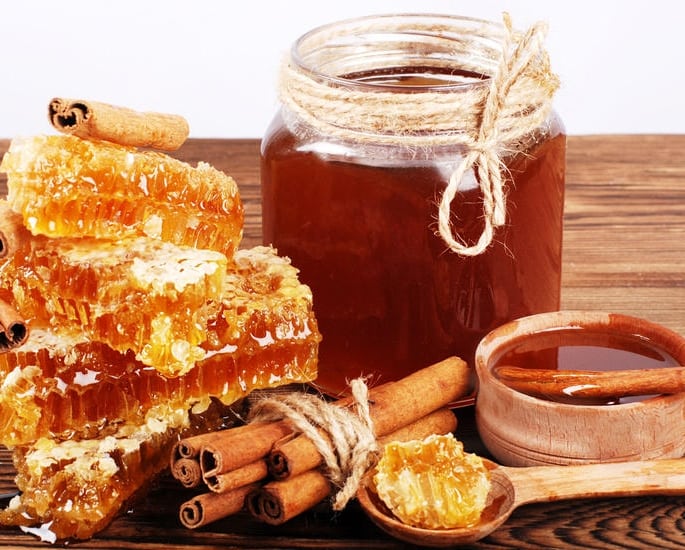
Honey is considered to be the oldest sweetener as it has been used for over 3000 years. India is one of the largest producers of honey.
Bees make honey out of flower nectar. They process the flower nectar into simple sugars and store it into honeycomb.
The completely natural production of honey makes leaves it rich with nutrients not found in processed white sugar.
The contents of honey are 40% fructose, 30% glucose, water and minerals such as iron, calcium, potassium and magnesium. Fructose is a simple sugar found in fruits and honey.
These properties make the honey taste even sweeter than sugar!
Honey can be used instead of sugar for baking, sauces and hot drinks. It is the best for moist, rich flavoured bakes.
If you’re swapping sugar for honey, be sure to use less than the recipe calls for, because honey is naturally sweeter and caramelises more quickly than white sugar.
Using honey instead of white sugar can also make for a very tasty coffee!
It is worth noting that honey has 64 calories per tablespoon, while sugar only has 49 calories per tbsp. This is another good reason to use slightly less honey where you normally would use sugar.
Honey has been used for medicinal healing and for cosmetics for centuries, and there are good reasons for it.
Honey is antibacterial and easily digestive, and it is great for the hair and skin. It even stimulates the brain and heals wounds and ulcers!
What is there not to love about honey?
- Tesco Rowse Organic Clear Honey 340 g ~ £3.30
- Asda Organic Clear Honey 340 g ~ £3.00
- Sainsbury’s Clear Honey, SO Organic 340 g ~ £2.80
Sorghum Syrup
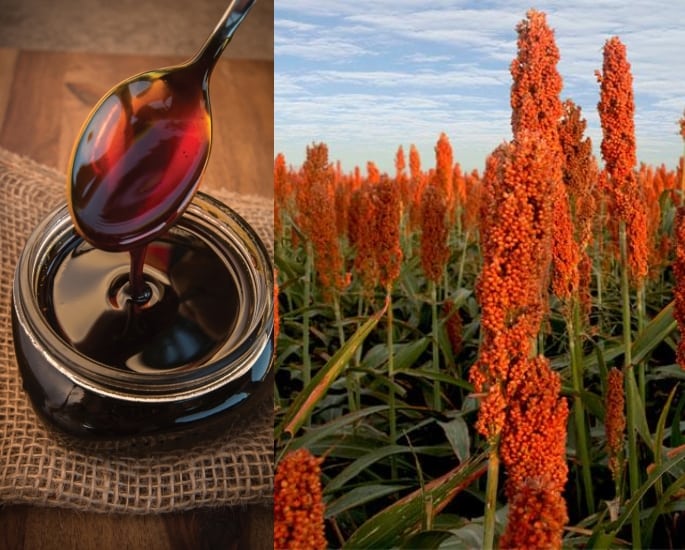
Sorghum is a gluten-free grain ground into flour. It is usually added to bread, porridge and cakes. In India, it is known as jowar, cholam or jonna.
Sorghum is a cereal grain originating in Africa from 3000 BC. Sorghum cultivation started in India between 1500 and 1000 years ago. Today, it is the 4th largest cereal crop in the world.
In the 19th century, farmers started using sorghum molasses and refining it into sugar. In the 1970s, sweet sorghum was introduced into India.
It is produced in a way that the sap of grains is concentrated into molasses by cooking the juices from the plant. In that process, sorghum retains all nutrients as no chemical products are added.
The largest producers of sorghum are the United States, Nigeria and India. In India, sweet sorghum is promoted as healthy food and is used to make Bhakri (jolada rotti) and roti.
The nutritional value of sorghum is equal to multivitamins. Furthermore, it provides your organism with calcium, protein, iron, magnesium, potassium, phosphorus, zinc and riboflavin or B vitamins.
If you want to achieve the same effect in baking as with white sugar, use half as much sorghum as you would normally use sugar. So If you would use 1 cup of sugar, use a 1/2 cup of sorghum.
In recipes that don’t require the use of baking powder, you can use sweet sorghum as a replacement for honey.
Syrup from Madhura sweet sorghum has a great taste, so you can use it as a table syrup on biscuits and cakes.
It is interesting that sweet sorghum is even used in ethanol production, which is used as a bio-energy product.
A recent study has discovered that sweet sorghum has the highest level of antioxidants out of all the food products on the market!
Antioxidants in sweet sorghum minimise the risk of diabetes, cancer and heart diseases. It is no wonder why it is used in Ayurvedic medicine.
Sweet sorghum is cheap and has a therapeutic potential, so there’s no reason not to give it a shot!
- Amazon Golden Barrel Sorghum Syrup Wide Mouth Jar, 16 oz ~ £13.89
With these white sugar alternatives, you don’t have to worry about rendering your baked goods tasteless.
If consumed in moderation, these desi sugar alternatives can provide a tasty sugar replacement with numerous health benefits for your body. So why not make the switch today?
If you are a diabetic, please consult your doctor or medical professional before consuming any of these sugar alternatives.




















































